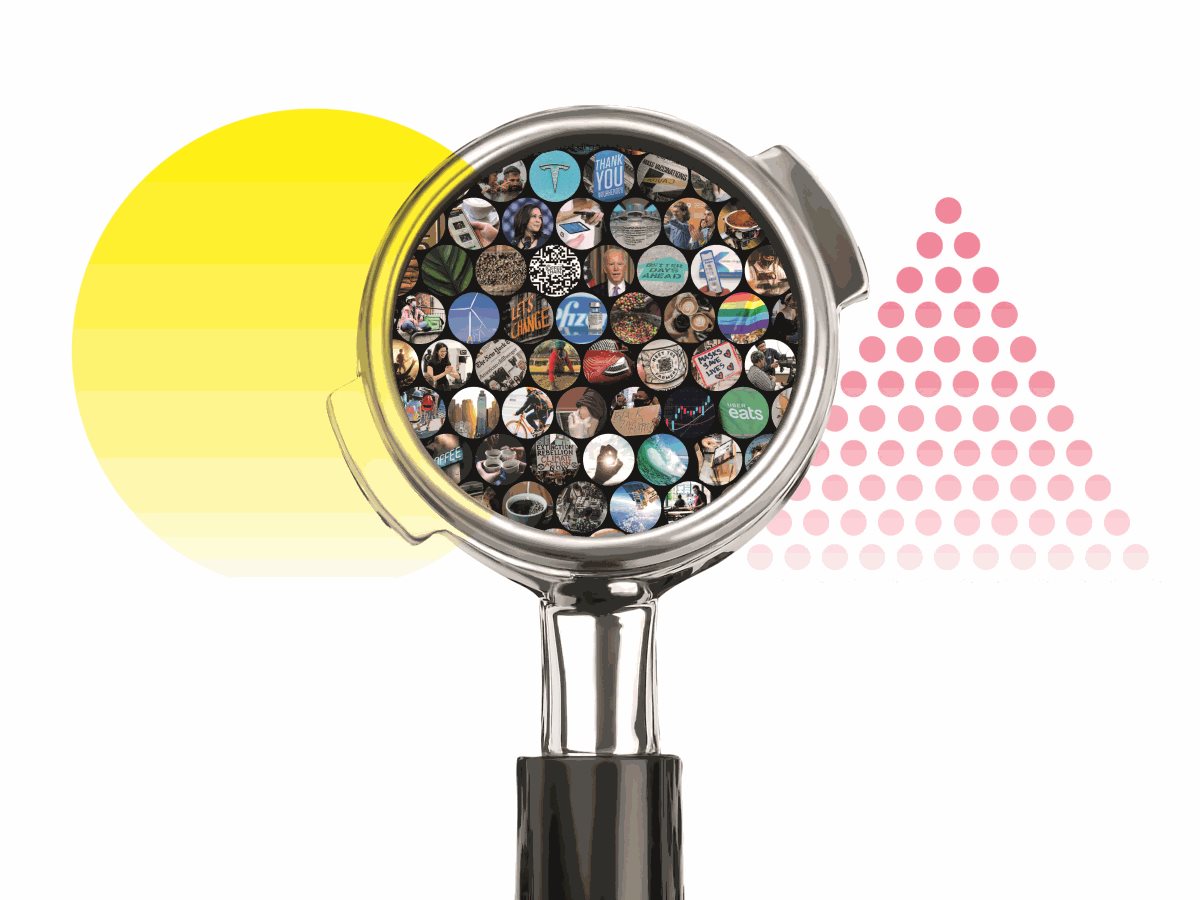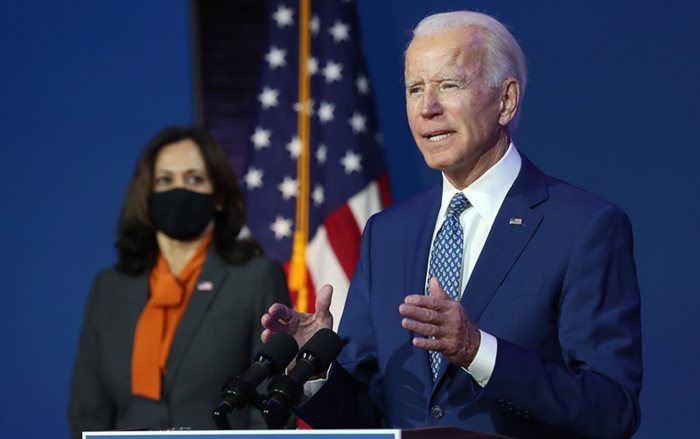Covid-19 has caused global upheaval not seen since the Second World War. As humanity looks towards the end of the pandemic, 5THWAVE examines the historic opportunities for change in 2021 and why progressive coffee businesses can thrive in the years ahead. The first article in this four-part series examines the global economic recovery and rapid development of Covid-19 vaccines worldwide
.png.aspx?width=700&height=525)
Grounds for optimism: What a historic opportunity for positive change after Covid-19 means for the global business of coffee
In the short space of the last 12 months Covid-19 has transformed once simple pleasures, such as meeting friends for coffee, into tantalising memories of lives we once took for granted. Yet, our yearning for the past is nothing new.
Just over a century ago ‘A Return to Normalcy’ was the 1920 presidential campaign slogan of Warren G. Harding. His successful bid for the White House hinged on restoring the status quo after the horrors of the First World War and the Spanish Flu pandemic, which killed at least 50 million people worldwide.
History, it seems, has a sense of nostalgia. In 2021, as global deaths from Covid-19 passed 2.5 million, including over 500,000 US citizens, Joe Biden won the 2021 US election on a campaign of national healing and resetting world ties. Elsewhere, governments around the world are staking their popularity on lifting Covid-19 restrictions and returning societies to normalcy.
The case for optimism
Humanity has rapidly adapted and demonstrated remarkable resilience during Covid-19. As the end of the pandemic draws nearer, there are multiple positive factors converging in 2021 that should give the global hospitality industry, and world community, grounds for optimism.
The end of the Covid-19 pandemic is within the world’s grasp thanks to the break-neck pace of vaccine development and efforts to control virus transmission. Israel, the UAE, the UK and the US have made rapid progress, and other countries around the world are now ramping up vaccination programmes at lightning speed.
With many hospitality businesses poised to reopen as trading restrictions ease in 2021, the global economic recovery appears to be well underway. While the US economy is emerging from the pandemic stronger than expected, China and other East Asian countries have proved remarkably resilient – and there are green shoots appearing in Europe too.
The rapid adoption of new technologies necessitated by Covid-19 means coffee shops have the opportunity to harness data capture, new ways of interacting with customers and greater operational efficiencies. Meanwhile, the rise in home working has revitalised the neighbourhood café as a key element of local communities.

As of 19 March 2020, nearly 410 million Covid vaccine doses has been administered globally, equal to 5.3 doses for every 100 people
Following Joe Biden’s election win, the US has re-joined the Paris Agreement – a hugely significant development in the global effort to fully tackle the climate crisis. With China now targeting an ambitious low-carbon economy, and many nations targeting ‘net zero’ by 2050 there is a growing chorus of global action on the environment, single-use plastics and air pollution.
The post-pandemic world also presents a major opportunity for healing social injustice and inequality. With global movements, such as Black Lives Matter and Me Too already spearheading action on equality, hospitality businesses now have the opportunity tofurther promote human values and quality of life for all industry stakeholders.
Covid-19 has greatly accelerated the development and adoption of new business models. For the hospitality industry, disruption to traditional ways of working has opened significant opportunities across e-commerce, delivery and a booming at-home coffee market.
In the US, the election of Joe Biden represents a well-timed turning point on social equality, vaccination and the climate crisis. With the world’s largest economy returning to greater involvement in world affairs, and less polarising domestic policies, there is now greater scope for international cooperation on trade, the environment and controlling Covid-19.
The reality is that key challenges will remain for some time to come. Severe business disruption, rising inequality and the proliferation of further coronavirus variants could yet impede the pace of returning to a new normality. Nonetheless, the case for optimism is strong.
Containing Covid-19
Mass vaccination is fundamental for returning customers to coffee shops, bars and restaurants. Modelling by the University of Chicago shows that around 70% of a population must be vaccinated for a country to achieve so-called ‘herd immunity’.
“The best measures [to support hospitality] are those that will drive down the case numbers and severity of Covid-19, such as consistent mask wearing and social distancing, especially within restaurants, coffee shops and other gathering places, and a robust and speedy vaccine roll out,” says Lauren Uppink, Head of Aviation, Travel and Tourism Industries at the World Economic Forum (WEF).
“The fewer people affected by Covid-19, the more there are to participate in economic activity, domestic tourism and hospitality,” she adds.”
There are strong indications the world is making significant progress. As of 19 March 2020, nearly 410 million vaccine doses had been administered globally, equal to 5.3 doses for every 100 people.
"The vaccination rollout across the world is promising and suggests we could return to ‘relatively normal’ soon"
– Lauren Uppink, Head of Aviation, Travel and Tourism Industries at the World Economic Forum (WEF)
In Israel and the UK, around 55% and 40% of the population respectively has received at least one vaccine dose. Israel aims to fully vaccinate at least 80% of its nine million population by May 2021, while the UK says it will offer the vaccine to all citizens aged over 18 by the end of July. Scientists believe herd immunity could be achieved in Europe by July 2021 and the US is now vaccinating at a rate of around 2.5 million citizens per day.
For evidence of the efficacy of vaccines in returning societies to normalcy, positive effects are already being felt in Israel. Encouraging data from the country’s Health Ministry shows two doses of the Pfizer vaccine administered two weeks apart reduced rates of serious infection and hospitalisation by around 99%. In late- February 2021, the country reopened swathes of its economy, including retail, museums and schools. Crucially, only citizens with a ‘green pass’ vaccination certificate will be permitted to visit hospitality venues, cultural events and hotels.
“I use Israel as an example of what can happen when you effectively vaccinate a substantial proportion of the people,” US President Biden’s Chief Medical Advisor, Dr Anthony Fucci, told the
The Times of Israel.
With the US, Europe, China and India all significantly ramping up vaccination production and distribution, the global vaccination effort is hugely positive news for businesses and individuals worldwide.
“The vaccination rollout across the world is promising and suggests we could return to ‘relatively normal’ soon. I am also optimistic about the many collaborative efforts underway to ensure safer cross-border travel and the acceleration of digital identity and verifiable credentials technologies. This would stimulate much needed economic activity and hopefully contribute to the survival of the hospitality industry over time,” says WEF’s Lauren Uppink.
A global economic recovery
For thousands of hospitality businesses preparing to reopen after trading restrictions ease, there are positive signs the global economic revival is already underway. This should provide a strong platform for recovery and generate much-needed consumer confidence.
The Organisation for Economic Cooperation and Development (OECD) is forecasting global economic growth of 5.6% in 2021, with world output expected to recover to pre-pandemic levels by the middle of the year. With economic activity improving worldwide, particularly across China, Asia and the US, international trade in 2021 looks set to be strong.
"There’s plenty of demand for people to come back to coffee shops and hospitality venues"
– James Watson, Senior Beverage Analyst, Rabobank
While the old saying, ‘when the US sneezes the world catches a cold’, may not hold the clout it once did, the health of the world’s largest economy still has profound ramifications globally. Indicating the prospect of a significant economic resurgence, the US economy is forecast to grow 6.5% in 2021, revised up from 4.2% in 2020.
Thanks to the new administration’s policies, the US economy is also getting a shot in the arm. A new $1.9trn Covid-19 rescue package is the centrepiece of Biden’s Covid-19 recovery strategy. The American Rescue Plan Act of 2021 includes $1tn for households, with $1,400 direct payments to all Americans, $415bn to fight the virus and $440bn for small businesses.
The stimulus package is hugely positive news for operators hoping to catalyse pent-up consumer demand for out-of-home experiences.
“There’s plenty of demand for people to come back to coffee shops and hospitality venues. In New York, restaurants are only opening a quarter of their indoor dining currently, but that quarter is full pretty quickly,” says James Watson, a senior beverage analyst at Rabobank.

Joe Biden signed a $1.9tn economic relief bill into law in March with the aim to help Americans impacted by Covid-19
China, a country holding vast potential for international hospitality brands, is aiming to exceed 6% growth in 2021 after emerging from the pandemic in a remarkably strong position. World Coffee Portal data shows China’s branded coffee shop market grew 2.9% by outlets in 2020, with substantial 11% growth forecast for 2022.
South Korea’s economy has also proved resilient during the pandemic and is forecast to grow around 5.5% in 2021. Data from Project Café East Asia 2021 shows East Asia’s largest and most developed branded coffee shop market grew by a remarkable 8.3% to nearly 25,000 outlets in 2020, with growth of nearly 6% forecast for 2021.
There are also green shoots appearing in Europe. Eurozone economies are expected to reverse a 6.8% contraction in 2020 to grow 3.8% in 2021. Europe’s largest economy Germany, is forecast to grow 3.1% in 2021, reversing 4.9% decline in 2020. After contracting by 9% in 2020, France’s economy is projected to grow by more than 5% in 2021. Italy’s economy, too, is expected to rebound in 2021, growing by around 4.8%.
Despite being hit hard by Covid-19 and problematic Brexit transition, there are also positive signs for the UK economy. In March 2021 the OECD upgraded the UK’s growth forecast by 0.9% to 5.1%.
Across the US, Europe and Australasia, the rapid and successful deployment of wage support and job furlough schemes have proved invaluable to hospitality staff, and have supported many businesses through the worst of the pandemic.
Part Two of Grounds For Optimism will explore the rise of new technology and global action on the climate crisis.
This article was first published as part of a feature analysis in Issue 6 of 5THWAVE magazine.
Subscribe to 5THWAVE to receive each edition in print and digitally or sign up to our newsletter and be the first to read the latest articles and updates on World Coffee Portal research
